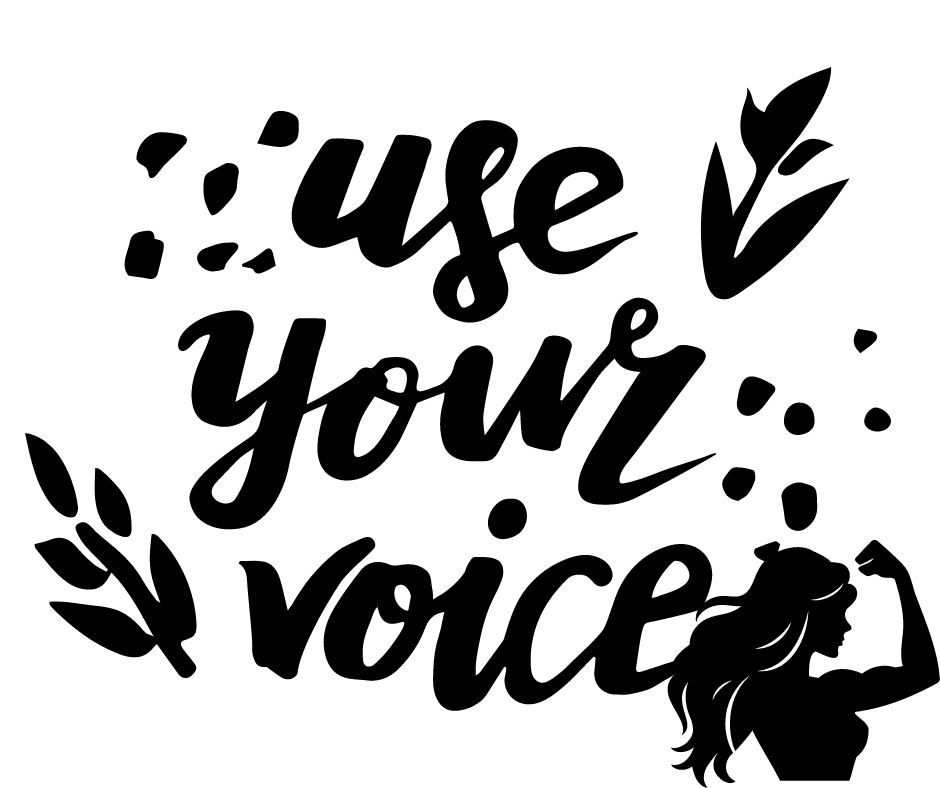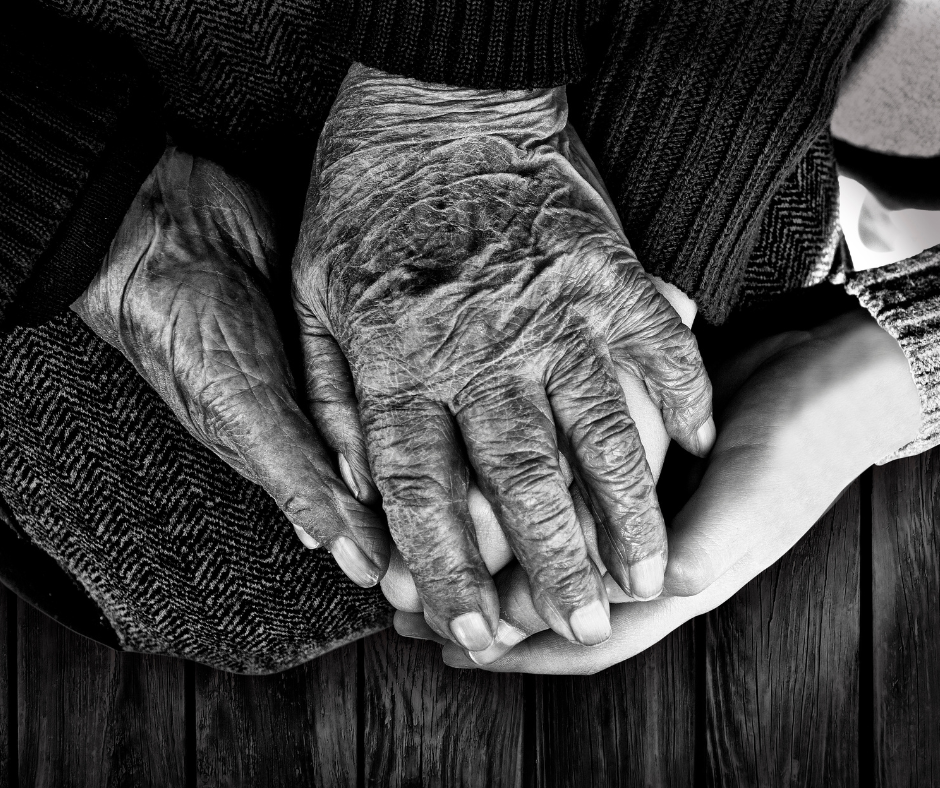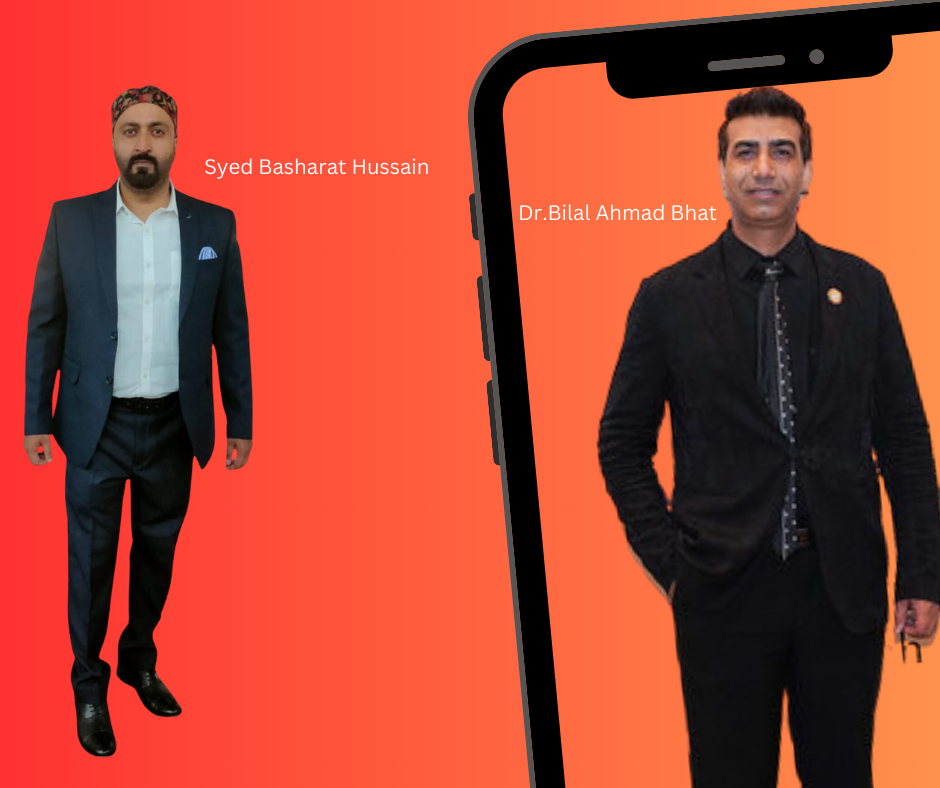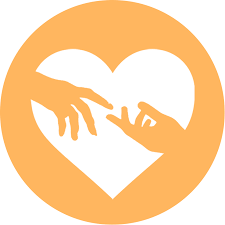Widows around the world often face significant socio-economic challenges, including discrimination, poverty, and marginalization. Despite these obstacles, their resilience and potential to contribute meaningfully to society are immense. Aligning their empowerment with the United Nations’ 17 Sustainable Development Goals (SDGs) offers a strategic framework for creating inclusive, equitable, and sustainable communities. This blog explores how the voice of widows can and should be integrated into the global commitment to achieving the SDGs by 2030. SDG 1: No Poverty Widows frequently face economic hardships due to loss of income and property rights. Empowering widows with financial literacy programs, access to credit, and entrepreneurship opportunities can significantly reduce poverty levels. Supporting initiatives that offer widows vocational training and employment opportunities will ensure sustainable livelihoods. Actionable Steps: Develop community-based microfinance programs tailored for widows. Provide vocational training and skill development workshops. Ensure access to social protection systems and safety nets. SDG 2: Zero Hunger Widows often struggle with food insecurity. Addressing their nutritional needs through community gardens, food distribution programs, and agricultural training can ensure they and their families have access to sufficient and nutritious food. Actionable Steps: Establish community gardens and cooperative farming projects. Create food assistance programs specifically for widows and their dependents. Promote sustainable agricultural practices among widows. SDG 3: Good Health and Well-Being Health care access is critical for widows, who may face physical and mental health challenges following their spouse’s death. Providing affordable and accessible healthcare services, including mental health support, is crucial. Actionable Steps: Set up mobile clinics to provide health services in remote areas. Offer mental health counseling and support groups. Implement health awareness campaigns focusing on widows’ specific health needs. SDG 4: Quality Education Education is a powerful tool for widows and their children to break the cycle of poverty. Ensuring widows have access to education and lifelong learning opportunities can transform their lives. Actionable Steps: Provide scholarships and adult education programs for widows. Support initiatives that facilitate school attendance for widows’ children. Create literacy programs tailored for widows. SDG 5: Gender Equality Widows often face gender-based discrimination. Promoting gender equality through legal reforms, awareness campaigns, and community engagement can help protect their rights and ensure their participation in societal development. Actionable Steps: Advocate for legal reforms to protect widows’ rights to inheritance and property. Launch awareness campaigns to combat stigmatization and discrimination against widows. Encourage the formation of widow support groups and networks. SDG 6: Clean Water and Sanitation Access to clean water and sanitation is fundamental for health and well-being. Ensuring widows have adequate water and sanitation facilities can prevent diseases and improve their quality of life. Actionable Steps: Implement community water projects to ensure access to clean water. Construct sanitation facilities in areas where widows reside. Promote hygiene education programs targeting widows. SDG 7: Affordable and Clean Energy Energy access is crucial for widows’ economic activities and overall well-being. Providing affordable and clean energy solutions can enhance their living conditions and support entrepreneurial activities. Actionable Steps: Distribute affordable solar lamps and clean cooking stoves to widows. Support community renewable energy projects. Train widows in the maintenance and use of clean energy technologies. SDG 8: Decent Work and Economic Growth Economic empowerment of widows can drive local and national economic growth. Creating decent work opportunities and supporting entrepreneurship among widows can lead to sustainable development. Actionable Steps: Develop job placement and career development programs for widows. Offer business training and support for widow-led enterprises. Promote fair trade practices that benefit widows’ businesses. SDG 9: Industry, Innovation, and Infrastructure Investing in infrastructure that supports widows’ economic activities can drive innovation and growth. Providing access to technology and infrastructure can enable widows to participate in economic development. Actionable Steps: Establish hubs that provide widows with access to technology and resources. Invest in infrastructure projects that improve widows’ access to markets and services. Support innovative projects that address widows’ specific needs. SDG 10: Reduced Inequality Widows often experience social and economic inequalities. Addressing these disparities through inclusive policies and programs is essential for achieving equitable development. Actionable Steps: Implement policies that ensure widows have equal access to resources and opportunities. Promote social inclusion programs that integrate widows into community activities. Address discriminatory practices that affect widows. SDG 11: Sustainable Cities and Communities Creating sustainable and inclusive communities involves ensuring widows have access to safe housing, transportation, and services. Urban planning should consider the unique needs of widows. Actionable Steps: Develop affordable housing projects for widows. Improve public transportation systems to be accessible for widows. Ensure community services are inclusive and cater to widows’ needs. SDG 12: Responsible Consumption and Production Promoting sustainable practices can benefit widows economically and environmentally. Training widows in sustainable agriculture and crafts can create eco-friendly income opportunities. Actionable Steps: Provide training in sustainable farming and resource management. Support widow-led enterprises that produce eco-friendly products. Promote recycling and waste reduction initiatives within communities. SDG 13: Climate Action Widows are often disproportionately affected by climate change. Enhancing their resilience through climate adaptation programs can protect them from environmental risks. Actionable Steps: Implement climate adaptation training and resources for widows. Involve widows in community-based climate action initiatives. Develop emergency preparedness plans that consider widows’ vulnerabilities. SDG 14: Life Below Water For widows in coastal and fishing communities, sustainable management of marine resources is vital. Supporting their involvement in conservation efforts can ensure their livelihoods. Actionable Steps: Train widows in sustainable fishing practices. Involve widows in marine conservation projects. Support alternative livelihood programs to reduce pressure on marine resources. SDG 15: Life on Land Widows often depend on land for their livelihoods. Ensuring their rights to land and resources, and promoting sustainable land use practices can enhance their economic security. Actionable Steps: Advocate for secure land tenure for widows. Promote sustainable agriculture and forestry practices. Support reforestation and conservation projects involving widows. SDG 16: Peace, Justice, and Strong Institutions Widows need protection from violence and exploitation, and access to justice. Strengthening legal frameworks and institutions to support widows’ rights is crucial. Actionable Steps: Advocate for
Empowering Vulnerable Communities: The Impact of Supporting Orphans & Widows
In every corner of the world, there are communities facing the harsh realities of poverty, conflict, and disease. Among the most vulnerable members of these communities are orphans and widows, often left without adequate support or resources to thrive. However, amidst these challenges, there lies an opportunity for empowerment and transformation. Organizations like “The Voice of Widows” are championing the cause of these marginalized groups, offering them hope, support, and a pathway towards a brighter future. Orphans and widows represent some of the most vulnerable segments of society. Orphans, having lost one or both parents, often find themselves without the necessary care and resources for proper upbringing. Similarly, widows, having lost their spouses, are frequently left to navigate life’s challenges alone, often facing discrimination, poverty, and social exclusion. The plight of these individuals is not merely a matter of economics; it’s about dignity, social justice, and human rights. The Voice of Widows, a commendable organization dedicated to supporting widows and orphans, understands the multifaceted needs of these communities. By providing essential services such as shelter, education, healthcare, and vocational training, they are not just offering temporary relief but empowering individuals to break free from the cycle of poverty and dependency. Education lies at the heart of empowerment. By ensuring access to quality education for orphans and widows, organizations like The Voice of Widows are equipping them with the tools to build a better future for themselves and their communities. Education not only opens doors to employment opportunities but also fosters critical thinking, creativity, and confidence, enabling individuals to become agents of change in their societies. Moreover, The Voice of Widows recognizes the importance of economic empowerment. Through various vocational training programs and microfinance initiatives, they empower widows to become self-reliant entrepreneurs. By providing them with the necessary skills, resources, and support networks, these initiatives enable widows to generate sustainable income, thereby enhancing their economic independence and social status. Healthcare is another crucial aspect of empowerment. The Voice of Widows works tirelessly to ensure that orphans and widows have access to essential healthcare services, including maternal care, reproductive health services, and treatment for diseases such as HIV/AIDS. By prioritizing healthcare, they not only improve the physical well-being of individuals but also strengthen the resilience of communities as a whole. However, empowerment is not just about meeting basic needs; it’s also about restoring dignity and fostering social inclusion. The Voice of Widows actively advocates for the rights of widows and orphans, challenging discriminatory practices and promoting gender equality. Through awareness campaigns, legal aid services, and community outreach programs, they strive to create a more inclusive society where every individual is respected and valued. In conclusion, empowering vulnerable communities such as orphans and widows is not just a moral imperative but also a strategic investment in the future of our world. Organizations like The Voice of Widows exemplify the transformative power of compassion, dedication, and solidarity. By supporting their noble cause, we can contribute to building a more just, equitable, and compassionate world for generations to come. Together, let us raise our voices and stand in solidarity with the most vulnerable among us. If you’d like to support The Voice of Widows and their efforts to empower vulnerable communities, visit our website https://www.voiceofwidows.com/ to learn more about our initiatives and how you can make a difference. Remember, even the smallest act of kindness can create ripple effects of positive change in the lives of those in need. Let us join hands and be the voice of hope for orphans and widows around the world.
Empower Widows: The Voice of Change
Introduction: Widows often find themselves in vulnerable positions, facing economic hardship, social stigma, and emotional distress. In many cultures, they are marginalized and overlooked, struggling to rebuild their lives after the loss of their spouses. However, empowering widows is not just an act of charity; it’s a necessity for creating a more equitable and just society. In this blog, we delve into the importance of empowering widows and how organizations like The Voice of Widows are making a difference in their lives. The Plight of Widows: The journey of a widow is often fraught with challenges. Suddenly finding themselves solely responsible for their families, widows encounter financial instability, legal hurdles, and social isolation. In many communities, widows face discrimination and are deprived of basic rights such as property ownership and inheritance. Moreover, the loss of a spouse can lead to emotional trauma, leaving widows feeling abandoned and vulnerable. Empowering Widows: A Path to Security and Dignity: Empowerment is the key to helping widows reclaim their lives and live with dignity. This empowerment involves providing them with access to education, vocational training, and economic opportunities. By equipping widows with skills and resources, they can become financially independent and self-sufficient. Additionally, empowering widows means advocating for their rights and challenging societal norms that perpetuate discrimination and marginalization. The Voice of Widows: A Beacon of Hope: One organization that is at the forefront of empowering widows is The Voice of Widows. Founded on the belief that every widow deserves support and opportunities, this organization is dedicated to improving the lives of widows around the world. Through various initiatives such as skill development programs, legal assistance, and community support networks, The Voice of Widows is breaking barriers and fostering resilience among widows. Creating Sustainable Change: Empowering widows is not a one-time effort; it requires sustained commitment and collaboration. By partnering with governments, NGOs, and local communities, organizations like The Voice of Widows can create systemic change and address the root causes of widowhood vulnerability. This includes advocating for policy reforms, raising awareness about widow rights, and promoting gender equality. How You Can Help: Supporting organizations like The Voice of Widows is crucial in their mission to empower widows. Whether through donations, volunteering, or spreading awareness, every contribution makes a difference in the lives of widows. Additionally, advocating for gender equality and challenging stereotypes can help create a more inclusive society where widows are valued and respected. Conclusion: Empowering widows is not just a matter of charity; it’s a fundamental human right. By providing widows with the support and opportunities they need to thrive, we can create a more equitable and compassionate world. Through organizations like The Voice of Widows, we can amplify the voices of widows and work towards a future where every widow can live a secure and dignified life. Join us in our mission to empower widows and create lasting change.
Empowering Widows Through Education: The Voice of Widows Initiative
Introduction: In a world that often overlooks the struggles of widows, initiatives that provide support and empowerment are invaluable. The Voice of Widows, an organization committed to advocating for and uplifting widows, has taken a significant step forward by partnering with an education charity to reach out to widows of all ages. This collaboration aims not only to address the educational needs of widows but also to empower them to build better futures for themselves and their families. Addressing Educational Needs: Education is a powerful tool for empowerment, offering widows the opportunity to acquire new skills, gain confidence, and improve their economic prospects. However, widows, particularly those from disadvantaged backgrounds, often face numerous barriers to accessing education. These barriers may include financial constraints, lack of support networks, and societal stigmas. The partnership between The Voice of Widows and the education charity seeks to break down these barriers by providing widows with access to educational resources, scholarships, and mentorship programs. By addressing both the practical and emotional challenges widows encounter, this initiative aims to create a supportive environment where they can thrive academically and personally. Empowering Widows of All Ages: One of the most remarkable aspects of this initiative is its inclusivity. By reaching out to widows of all ages, the program recognizes that education is a lifelong journey and that it is never too late to pursue learning opportunities. Whether they are young widows grappling with the sudden loss of a spouse or elderly widows seeking to enhance their skills, every widow deserves the chance to pursue education and personal development. Through tailored educational programs and flexible learning options, the initiative ensures that widows can access education in a way that suits their individual circumstances. From vocational training and adult literacy classes to online courses and university scholarships, the program offers a wide range of opportunities for widows to expand their knowledge and skills. Building Brighter Futures: Education is not just about acquiring knowledge; it is also about unlocking potential and creating pathways to a brighter future. By investing in the education of widows, we are not only empowering individuals but also strengthening families and communities. Educated widows are better equipped to support themselves and their children, breaking the cycle of poverty and dependency. Moreover, educated widows are more likely to become agents of change in their communities, advocating for their rights and contributing to social and economic development. By harnessing the power of education, we can empower widows to overcome adversity, pursue their dreams, and become leaders in their own right. Conclusion: The partnership between The Voice of Widows and the education charity represents a significant step forward in the journey towards empowering widows worldwide. By recognizing the importance of education and reaching out to widows of all ages, this initiative is creating opportunities for personal growth, economic empowerment, and social transformation. As we continue to support widows on their educational journey, we are not just changing individual lives; we are building a more inclusive and equitable society for all.
The Entrepreneur’s Secret Weapon: Why Every Business Owner Needs a Mentor
Hey there, fellow entrepreneur! Are you ready to ignite your business journey with purpose and passion? Buckle up, because today, I’m diving into the game-changing power of having a mentor by your side. Let’s uncover why this partnership isn’t just beneficial—it’s essential for your success. Guided Growth: Steering Through Stormy Seas Picture this: you’re sailing the vast ocean of entrepreneurship, charting your course toward success. But wait, why navigate those turbulent waters alone? Enter the mentor, your seasoned captain amidst the storm. With their wisdom and experience, they’ll guide you through strategic planning, decision-making dilemmas, and unforeseen challenges. At the helm of Voice Of Widows, Dr. Bilal Ahmad Bhat knows that guided growth isn’t just smoother—it’s swifter. Don’t let your ship languish in uncertainty; set sail with a mentor and watch your business soar. Fresh Perspectives: Bursting the Bubble Entrepreneurship can be a solitary journey, confined within the echo chamber of our own ideas. But what if I told you there’s a world beyond those walls? A mentor, like Dr. Bhat at the Global Uganda Chamber, is the window to that world. They’ll challenge your assumptions, ignite innovation, and unveil opportunities hidden in plain sight. Embrace their fresh perspectives, and watch your business landscape transform into a playground of possibilities. Break free from the confines of your bubble—let your mentor be the catalyst for change. Personal Development: Building Better Leaders In the world of entrepreneurship, growth isn’t just about scaling your business—it’s about scaling yourself. Meet your mentor, the architect of your personal and professional evolution. Through programs curated by the Global Uganda Chamber, Dr. Bhat empowers entrepreneurs to hone essential skills: leadership, communication, resilience—the building blocks of success. Embrace the journey of self-discovery, and emerge as the best version of yourself. Remember, behind every thriving business is a leader who dared to grow. So, fellow entrepreneur, are you ready to unlock the full potential of your business journey? Don’t wait another moment. Reach out to Voice Of Widows, connect with Dr. Bilal Ahmad Bhat, and embark on the transformative voyage of mentorship. Guided growth, fresh perspectives, personal development—it’s all within your grasp. Seize the opportunity, and let your mentor be the wind beneath your entrepreneurial wings. Together, let’s rewrite the rules of success.
Unveiling the Challenging Plight of Widows: Advocacy Through The Voice of Widows
In the tapestry of human experience, few threads are as intricately woven with sorrow and resilience as that of widowhood. Yet, despite its prevalence across cultures and continents, the plight of widows often remains shrouded in silence, overlooked by mainstream discourse and policy agendas. Today, we lift the veil on this often-neglected demographic, exploring the challenges they face and shedding light on the critical role of advocacy groups like “The Voice of Widows.” Widowhood, with its profound emotional and practical challenges, is an experience that transcends borders and socio-economic divides. Whether in bustling metropolises or remote villages, widows grapple with grief, financial instability, social stigma, and legal hurdles. In many societies, widows find themselves marginalized, stripped of agency, and relegated to the fringes of community life. One of the most pressing challenges widows face is economic vulnerability. The loss of a spouse often plunges them into financial uncertainty, especially if they lack access to education, employment opportunities, or inheritance rights. In patriarchal societies, widows may find themselves dispossessed of property and assets, leaving them destitute and dependent on the goodwill of relatives or charity. Moreover, social stigmatization compounds the already heavy burden of widowhood. Cultural norms and taboos surrounding widowhood can lead to ostracism, discrimination, and even violence. Widows may be blamed for their husband’s death, labeled as cursed, or subjected to harmful traditional practices like widow cleansing or forced remarriage. Such indignities not only erode their sense of self-worth but also hinder their ability to rebuild their lives. Legal barriers further exacerbate the challenges faced by widows. In many jurisdictions, discriminatory laws and customs deny widows the right to inherit property, access healthcare, or make decisions about their own lives. Without legal protections, widows are vulnerable to exploitation, coercion, and abuse, perpetuating a cycle of disadvantage for generations to come. Amidst these formidable challenges, organizations like “The Voice of Widows” emerge as beacons of hope and change. By amplifying the voices of widows and advocating for their rights, these groups strive to dismantle systemic barriers and foster inclusive societies. Through community outreach, education, and policy advocacy, they empower widows to assert their rights, access essential services, and reclaim their dignity. “The Voice of Widows” embodies this spirit of resilience and solidarity, providing a platform for widows to share their stories, seek support, and demand justice. Through grassroots initiatives and partnerships with policymakers, they champion legal reforms, social programs, and economic opportunities tailored to the needs of widows. By fostering networks of mutual support and solidarity, they challenge the isolation and invisibility that often accompany widowhood. As we navigate the complex terrain of widowhood, let us heed the voices of those who have walked this path. Let us recognize the inherent dignity and resilience of widows, and commit ourselves to building a world where no widow is left behind. Through collective action and advocacy, we can ensure that the plight of widows receives the attention and compassion it deserves, transforming grief into empowerment and solidarity. In conclusion, the journey of widowhood is fraught with challenges, but it is also marked by strength, resilience, and the enduring power of community. By standing in solidarity with widows and amplifying their voices, we can create a more just and inclusive world for all.
Empower the Voice: “Voice of Widows – Turning Sorrows Into Strength”
The “Voice of Widows – Turning Sorrows Into Strength” initiative, launched by BAB Group of Companies and spread through the 28COE Ecosystem, is a transformative program aimed at empowering widows, particularly those in Jammu & Kashmir. This initiative emerged from discussions between Dr. Bilal Ahmad Bhat, Founder of 28 Credentials of Entrepreneur, and Syed Basharat Hussain, social & political activist. They highlighted the severe challenges faced by widows in the region, including tremendous isolation, lack of moral support, and societal stigmatization. The Plight of Widows in Jammu & Kashmir Widows in Jammu & Kashmir often experience profound loneliness and marginalization. The societal view of widows is often negative, seeing them through a lens of immorality and pity rather than as individuals deserving respect and support. This stigmatization exacerbates their struggles, making it difficult for them to integrate into society, access opportunities, and rebuild their lives. Raising Awareness and Empowerment “Voice of Widows” aims to address these issues head-on by raising awareness about the challenges widows face and advocating for their rights and dignity. The initiative brings to light many heartbreaking stories, showing the real, human impact of widowhood in a region marred by conflict and socio-economic challenges. Creating Opportunities through Startups To offer tangible support, the initiative focuses on creating various startups tailored to the needs of widows. By doing so, it provides them with opportunities for economic independence and self-reliance. These startups are designed to harness the skills and potentials of widows, helping them to turn their sorrows into strength. This approach not only offers financial support but also aims to restore their dignity and place in society. Call for Support and Suggestions The success of “Voice of Widows” relies heavily on community support and innovative ideas. The initiative invites contributions, suggestions, and active involvement from individuals and organizations who share the vision of empowering widows. By collaborating, the initiative seeks to expand its reach and effectiveness, ensuring that more widows can benefit from its programs. The Bottom Line “Voice of Widows – Turning Sorrows Into Strength” is a bold and necessary initiative that seeks to transform the lives of widows in Jammu & Kashmir. By addressing the deep-seated issues of isolation and stigmatization, and by providing concrete economic opportunities through startups, this initiative offers a path to dignity, independence, and strength for widows. The support and active participation of the broader community are crucial in realizing this vision and making a lasting impact on the lives of widows.
What a Startup Is and What’s Involved in Getting One Off the Ground
Introduction: In today’s rapidly evolving business landscape, startups have emerged as the driving force behind innovation, job creation, and economic growth. But what exactly is a startup, and how do you navigate the intricacies of launching one? Join us as we delve into the fundamentals of startups, explore the steps involved in getting one off the ground, and discuss the advantages and disadvantages they present. As the founder of BAB Group Of Companies and a firm believer in the transformative power of startups, Dr. Bilal Ahmad Bhat emphasizes their crucial role in shaping the future of economies worldwide. What Is a Startup? At its core, a startup is a fledgling business venture founded on a unique idea, product, or service with the potential for rapid growth and scalability. Unlike traditional businesses, startups are characterized by their innovative approach, disruptive nature, and quest for market dominance. They thrive on creativity, agility, and the ability to adapt swiftly to changing market dynamics. Understanding Startups: Startups operate within a dynamic ecosystem, encompassing entrepreneurs, investors, mentors, and support networks. They leverage technology, market insights, and strategic partnerships to gain a competitive edge and drive sustainable growth. However, startups also face numerous challenges, including funding constraints, market saturation, and regulatory hurdles. Success hinges on the founder’s vision, resilience, and ability to navigate these obstacles effectively. Special Considerations: Launching a startup requires careful planning, meticulous execution, and a willingness to embrace uncertainty. Entrepreneurs must assess market demand, identify target demographics, and refine their value proposition to attract customers and investors alike. Moreover, fostering a culture of innovation, collaboration, and continuous learning is essential for long-term success. Advantages and Disadvantages of Startups: While startups offer unparalleled opportunities for innovation and growth, they also entail inherent risks and uncertainties. On the one hand, startups empower entrepreneurs to pursue their passions, disrupt industries, and create meaningful impact. On the other hand, they face intense competition, financial instability, and the constant threat of failure. Balancing risk and reward is crucial for aspiring founders navigating the startup landscape. How Do You Start a Startup Company? Launching a startup begins with a compelling idea and a clear vision for the future. Entrepreneurs must conduct market research, validate their concept, and develop a robust business plan outlining their goals, strategies, and revenue model. Securing funding, building a talented team, and establishing a strong brand presence are key milestones on the path to success. Examples of Startups: From Airbnb and Uber to SpaceX and Airbnb, the startup landscape is replete with success stories that have revolutionized industries and reshaped our world. These companies started as ambitious ideas pursued by visionary founders who dared to challenge the status quo and defy conventional wisdom. Their journey serves as inspiration for aspiring entrepreneurs striving to make their mark on the world. How Do You Get a Startup Business Loan? Accessing capital is a critical aspect of startup growth and expansion. While traditional bank loans are an option, startups often seek alternative financing sources such as venture capital, angel investors, and crowdfunding platforms. Each funding avenue has its own requirements, terms, and implications, so entrepreneurs must weigh their options carefully and choose the best fit for their needs. What Are the Benefits of Working for a Startup? Joining a startup offers employees a unique opportunity to make a meaningful impact, gain valuable experience, and contribute to something greater than themselves. Startups foster a dynamic work environment, where innovation is encouraged, and individual contributions are recognized and rewarded. Additionally, employees have the chance to work closely with founders and executives, gaining insights and mentorship that can shape their career trajectory. How Do You Value a Startup Company? Valuing a startup is a complex process that involves assessing various factors, including market potential, revenue projections, intellectual property, and competitive landscape. While traditional valuation methods such as discounted cash flow analysis and comparable company analysis can provide insights, startups often require a more nuanced approach. Investors may also consider qualitative factors such as team expertise, industry trends, and potential for scalability when valuing a startup. The Bottom Line: As the founder of BAB Group Of Companies, Dr. Bilal Ahmad Bhat underscores the pivotal role of startups in driving innovation, job creation, and economic growth. By understanding the fundamentals of startups, embracing challenges, and leveraging available resources, entrepreneurs can embark on a transformative journey to build successful businesses that leave a lasting impact on society. Through initiatives like The Voice of Widows, we aim to empower aspiring founders, support startup ecosystems, and foster a culture of entrepreneurship that fuels progress and prosperity for generations to come.
Empowering Widows: The Noble Mission of The Voice of Widows
In the tapestry of society, widows often find themselves woven into a fabric of neglect and marginalization. Their voices, their rights, and their struggles are frequently overlooked. However, amidst these shadows, organizations like The Voice of Widows shine brightly, championing the cause of these resilient women and striving to uphold their rights with unwavering dedication. The Plight of Widows: A Silent Suffering Widowhood is not merely the loss of a spouse; it often signifies the beginning of a challenging journey fraught with hardships. In many cultures, widows face societal stigmatization, economic vulnerability, and legal discrimination. They may encounter barriers to inheritance, property rights, and access to essential services like healthcare and education. Moreover, the emotional toll of grief coupled with these systemic challenges can leave widows feeling isolated and powerless. Empowering Widows: The Mission of The Voice of Widows Amidst these injustices, The Voice of Widows emerges as a beacon of hope and empowerment. This organization stands firmly in solidarity with widows, striving to amplify their voices and safeguard their rights. Through advocacy, education, and community engagement, The Voice of Widows endeavors to break the chains of silence and create a world where widows are respected, supported, and empowered to lead fulfilling lives. Advocacy and Awareness: Illuminating the Path Forward Central to The Voice of Widows’ mission is advocacy—raising awareness about the challenges widows face and advocating for policy changes that protect their rights. By collaborating with policymakers, community leaders, and other stakeholders, the organization works tirelessly to dismantle discriminatory laws and practices that perpetuate the cycle of widowhood poverty and marginalization. Moreover, The Voice of Widows is committed to fostering a culture of empathy and understanding within society. Through educational initiatives and outreach programs, they seek to debunk myths surrounding widowhood and promote inclusivity and support for widows within communities. By shedding light on the often-hidden struggles of widows, they invite others to join them in their mission of compassion and solidarity. Empowerment through Education and Economic Independence Education is a powerful tool for empowerment, and The Voice of Widows recognizes its transformative potential. By providing widows with access to educational opportunities, vocational training, and entrepreneurship programs, the organization equips them with the skills and resources needed to rebuild their lives with dignity and self-sufficiency. Through initiatives that promote economic independence, widows can break free from the cycle of poverty and reclaim their agency. Building a Community of Support At the heart of The Voice of Widows lies a vibrant community of support—a place where widows can find solace, solidarity, and strength. Through support groups, counseling services, and peer mentorship programs, widows receive the emotional support they need to navigate the challenges of widowhood. By fostering connections and building networks of solidarity, The Voice of Widows creates a sense of belonging and resilience that empowers widows to face the future with courage and hope. Joining Hands for Change The journey to upholding the rights of widows is not one that can be traveled alone. It requires the collective efforts of individuals, communities, and organizations committed to justice and equality. As we stand in solidarity with widows everywhere, let us heed the call of organizations like The Voice of Widows and work together to create a world where every widow is valued, respected, and empowered to live life to its fullest. In the tapestry of humanity, the voices of widows must not be silenced. Let us join hands, lift our voices, and pave the way for a future where widows are no longer marginalized but celebrated for their strength, resilience, and unwavering spirit.
Healing, Support, and Education: Navigating the Journey of Widows and Widowers
Losing a spouse is undoubtedly one of life’s most challenging experiences. The journey of grief, healing, and adjustment that follows can be overwhelming, lonely, and often misunderstood. Widows and widowers find themselves grappling with a myriad of emotions, responsibilities, and uncertainties as they navigate through this profound loss. In such times, finding support, education, and a sense of community becomes invaluable. Understanding the Journey The experience of losing a spouse is deeply personal and unique to each individual. While some may find solace in memories and support networks, others may struggle with feelings of isolation, financial stress, or even guilt. Recognizing and validating these diverse experiences is crucial in providing effective support to widows and widowers. Healing Through Support In times of grief, having a supportive community can make a world of difference. Organizations like “The Voice of Widows” play a vital role in offering a safe space for widows and widowers to share their stories, connect with others who understand their journey, and access resources tailored to their needs. Founded on the principles of empathy, understanding, and empowerment, “The Voice of Widows” aims to be a beacon of hope for those navigating the tumultuous waters of widowhood. Through support groups, counseling services, and educational workshops, the organization strives to foster healing, resilience, and a sense of belonging among its members. Education as Empowerment In addition to emotional support, education plays a crucial role in empowering widows and widowers to rebuild their lives. From financial planning and legal matters to coping strategies for grief and self-care, access to relevant information equips individuals with the knowledge and tools needed to navigate the practical challenges of widowhood. “The Voice of Widows” recognizes the importance of education in empowering its members to make informed decisions and regain a sense of control over their lives. Through workshops, seminars, and online resources, the organization strives to provide valuable insights and practical guidance on various aspects of widowhood, ensuring that individuals feel empowered to take charge of their futures. Building a Community of Resilience Widowhood is not the end of the road but rather the beginning of a new chapter—a journey of self-discovery, growth, and resilience. By coming together, sharing experiences, and supporting one another, widows and widowers can find strength in solidarity and hope in the promise of tomorrow. As we continue to navigate the complexities of life after loss, let us remember that healing is not a solitary endeavor but a collective journey—one that is nurtured by compassion, understanding, and the unwavering support of community. Together, we can create a world where widows and widowers are not defined by their loss but empowered by their resilience, and where organizations like “The Voice of Widows” serve as beacons of light in the darkness of grief. In closing, let us embrace the power of unity, empathy, and education in transforming the journey of widowhood from one of despair to one of hope, healing, and new beginnings.










